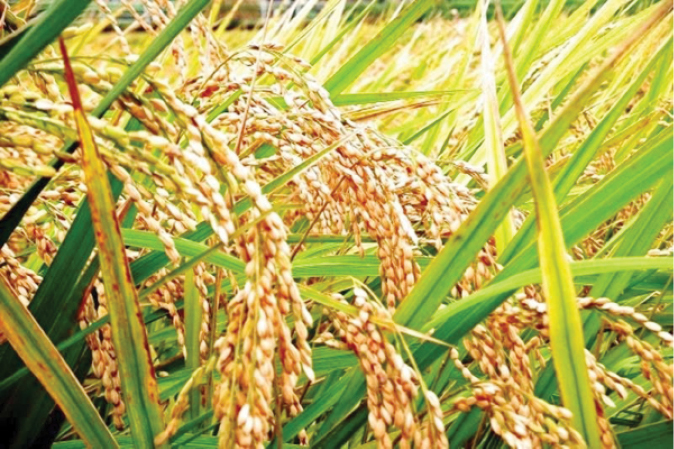4,644 seed samples for climate-resilience crops – Study
At least 4,644 seed samples of crop wild relatives from four continents have been collected in a six-year effort to deliver climate change support for farmers. The 10-year Adapting Agriculture to Climate Change (Crop Wild Relatives) Project is managed by Crop Trust, in partnership with the Royal Botanic Gardens and Kew’s Millennium Seed Bank (MSB), […]

Rice is one of the crops witnessing the develoment of improved seeds
At least 4,644 seed samples of crop wild relatives from four continents have been collected in a six-year effort to deliver climate change support for farmers.
The 10-year Adapting Agriculture to Climate Change (Crop Wild Relatives) Project is managed by Crop Trust, in partnership with the Royal Botanic Gardens and Kew’s Millennium Seed Bank (MSB), with funding from the Government of Norway.
According to a joint statement from the two organisations, over 100 scientists from 25 countries on four continents took part in a six-year quest to collect the wild plant species that scientists and breeders can use to make crops more productive in increasingly challenging climates.
After spending 2,973 days in the field, the researchers secured 4,644 seed samples of 371 crop wild relatives.
“Crop wild relatives, the sturdier cousins of crops that still grow in the wild, have evolved to survive harsh conditions, such as low rainfall, flooding, temperature extremes and poor soils and offer a largely untapped source of diversity for climate-proofing crops.
“Threatened by extinction due to rampant deforestation, climate change, urban sprawl and conflict, losing this diversity would have major implications for global food security.
“As part of this project, scientists went to far-flung corners of the world to collect and conserve a long list of plants that will help breed crops that are more productive and resilient to the impacts of extreme weather and newly emerging diseases,” said Hannes Dempewolf, senior scientist and the head of global initiatives at the Crop Trust.
Nora Castañeda-Álvarez, the lead researcher on the initial study, which identified exactly which species should be collected said, “Worldwide, there are dozens of gene banks safeguarding the diversity of food crops.
“We found chinks in the armour of the global food system. Many important species were entirely absent from these collections, or were seriously underrepresented in them. We needed an urgent rescue mission to find and safeguard as many crop wild relatives as possible before they disappeared from their natural habitats,” Castañeda-Álvarez stated.
